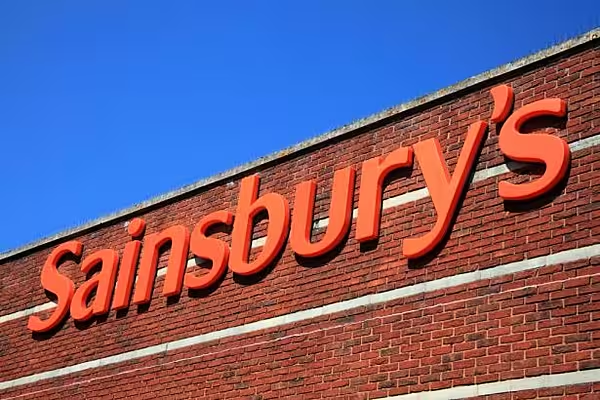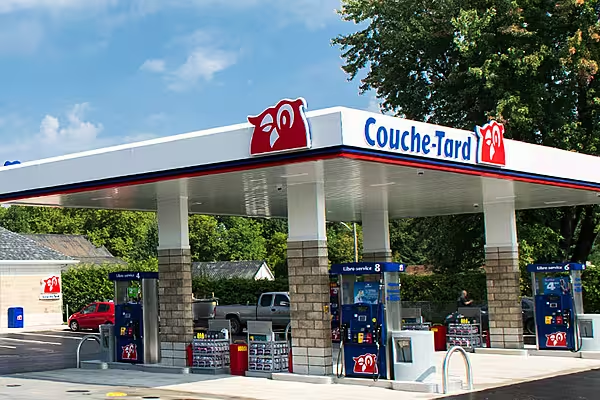Sainsbury's has posted a like-for-like sales increase of 6.9% in the half-year to 19 September, however the extended closure of its Argos stores meant that the retailer posted a half-year loss of £137 million.
Commenting on its performance, chief executive Simon Roberts said, "While we are working hard to help feed the nation through the pandemic, we have also spent time thinking about how we deliver for our customers and our shareholders over the longer term."
Here's how leading industry analysts viewed its performance:
Russ Mould, AJ Bell
"Sainsbury’s Plan A to revitalise growth was to try and merge with Asda and that didn’t work. Plan B was to close supermarkets, stop selling mortgages and reduce costs and debt. Led by new chief executive Simon Roberts, plan C is an amalgamation of plan B with a primary focus on food, as well as being clever with how its non-food brands operate.
“It’s great to see Roberts have a clear idea of where to take the business. Unfortunately, it’s going to take more than words to convince the market that Sainsbury’s can bounce back and fight off fierce competition.
“It feels like large swathes of the retail sector have been in transformation mode for years and recovery strategies keep changing, particularly in the case of Sainsbury’s and Marks & Spencer. The market really wants to see some results before the ship is steered in a different direction once again.
“Arguably Sainsbury’s focus on food should have been the strategy all along and it goes to show how the business previously lost its way and forgot its roots as a grocer."
Thomas Brereton, GlobalData
"As Sainsbury’s forges ahead with its integration of Argos into Sainsbury’s stores, new Sainsbury’s CEO Simon Roberts has accelerated plans to close standalone Argos stores, a move (alongside the permanent closure of meat, fish and delicatessen counters in Sainsbury’s stores) that is forecast to result in the loss of 3,500 staff roles.
"While news of job cuts is always lamentable, it is born out of necessity of the 'new normal'; 90% of Argos’s sales originated online during the period, supporting the claim that the current standalone Argos store portfolio (556 stores) is excessive.
"Outside of this unfortunate announcement, Sainsbury’s results are a pleasing read. Strong performances across its core food business and Argos have more than covered losses across clothing (sales down 18.3%, although online clothing sales are up 75%) and non-Argos general merchandise, with operational streamlining (a focus at Sainsbury’s over the past 18 months) allowing for a 27.0% rise in operating profit.
"Sainsbury’s core food strategy ('Food First') appears to be a reasonable one, with a joint focus on lowering core prices, product innovation and online fulfilment. However, Sainsbury’s must be careful not to become too embroiled in a value battle with the likes of Tesco and Morrisons – one that, given Sainsbury’s slightly more premium reputation, Sainsbury’s will struggle to come out on top (noting similar plans at Waitrose and Co-op as well)."
Clive Black, Shore Capital
"By way of first impression we consider Simon Roberts’ first set of results as the CEO of the UK’s Number Two grocer by market position to be simply excellent. He has grabbed the bull by the horns, developed a plan that at surface level appears credible and one that can sustain free cash flow, strengthen the group’s solvency and so sustain an income stream to investors. We also note that he is waiving any current year bonus entitlement.
"We welcome this update from the new CEO, albeit contains tough messages for employees whose roles change and are removed, and see his renewed focus upon food as sensible, not least because the economics and dynamics of the UK grocery market are improving through market value exceeding new capacity, a correlation that improves with working from home, the rise of online grocery and the contraction in capacity in the Food & Beverage channel.
"We also welcome the ongoing focus on cost reduction, seeking to take 200 basis points out of the operating base to FY2024 (c£600m), which we believe permits scope for positive operational gearing and negative working capital to emerge. We also applaud the intent that non-grocery cannot live off the mothership and so needs to be more effective, relevant and efficient."
© 2020 European Supermarket Magazine – your source for the latest retail news. Article by Stephen Wynne-Jones. Click subscribe to sign up to ESM: European Supermarket Magazine.














